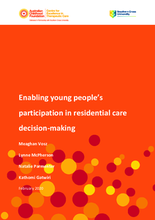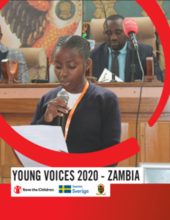Displaying 111 - 120 of 377
One of several reports produced as part of the Scottish Independent Care Review, The Plan outlines how to implement the changes recommended in The Promise.
The Independent Care Review’s aim is to identify and deliver lasting change in Scotland’s care system and leave a legacy that will transform the wellbeing of infants, children and young people.
This Thank You is intended for the thousands of people who contributed to the Scottish Independent Care Review. It describes the process of the Care Review and lists the names of many of the organizations and individuals who were involved.
One of several reports produced as part of the Scottish Independent Care Review, The Promise sets out an overall view of what the new approach to children's care in Scotland should be.
These films show what the Independent Scottish Care Review learned from talking with children, young people, their families and carers.
One of several reports produced as part of the Scottish Independent Care Review, The Pinky Promise presents a young reader-friendly version of The Promise report, which sets out an overall view of what the new approach to children's care in Scotland should be.
This brief addresses issues in young people’s participation in decision-making in residential care in Australia.
The purpose of this study was to explore the experiences of young people with child protection meetings, in order to develop better ways to improve children’s participation in child protection in Ghana.
The Young Voices survey was conducted primarily to establish the level of children’s awareness about their rights and understanding what critical issues they face in terms of their rights.
This resource is structured into six ‘practices’ that the authors learned from policy actors who are working in development, consultation and evaluation of policy that directly impacts the lives of children and young people in care.







